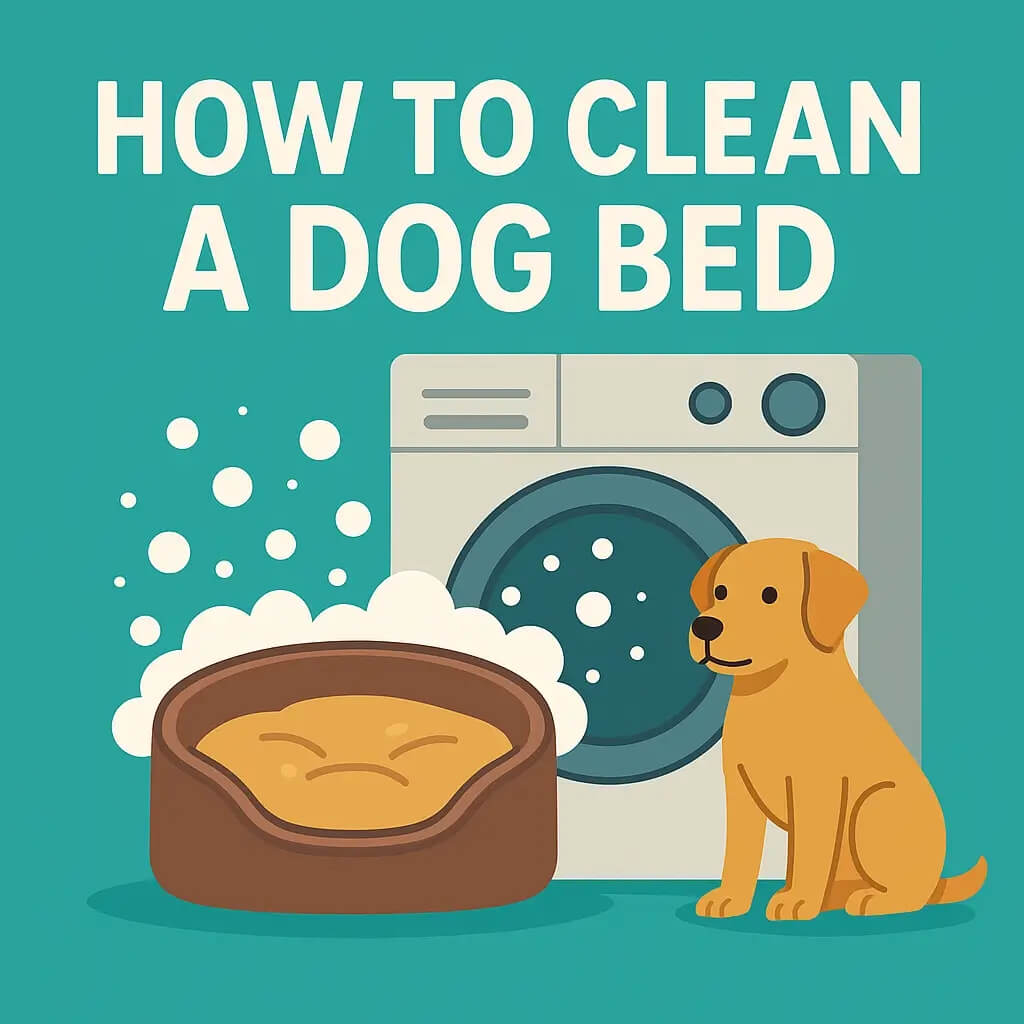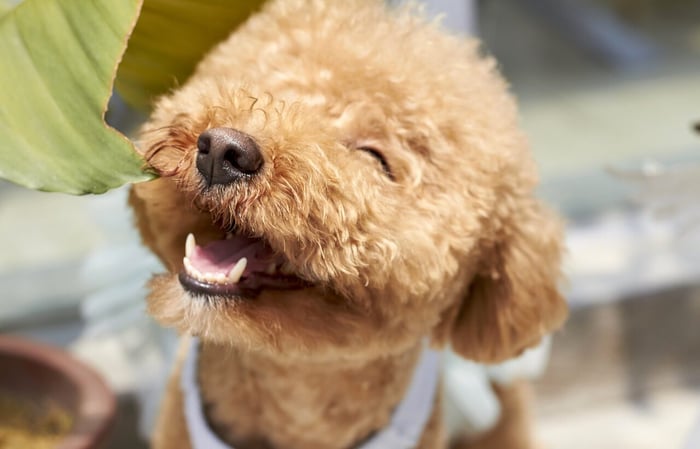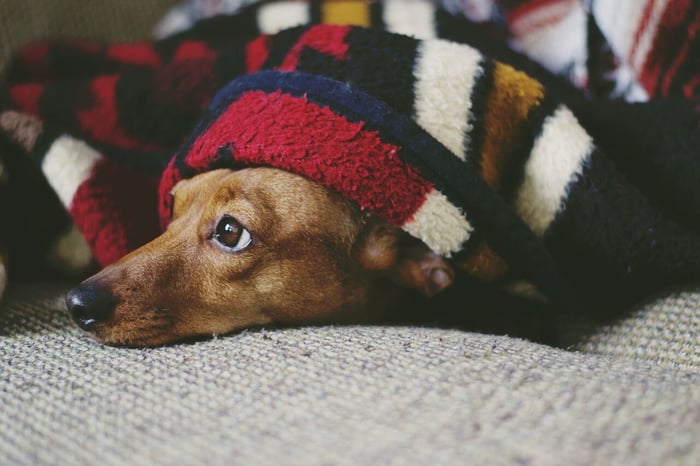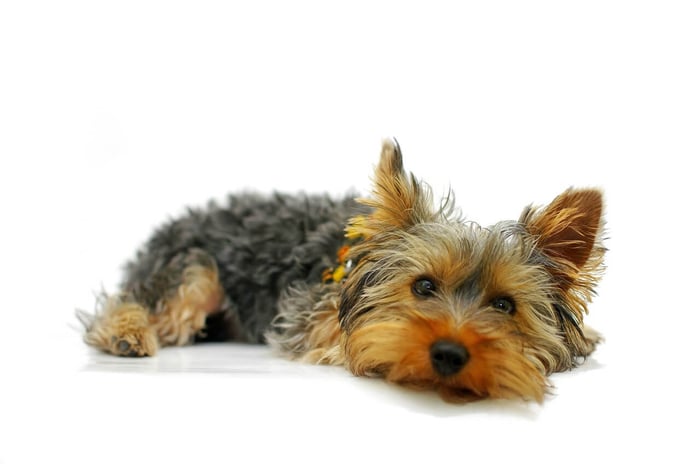The poodle is widely. Adored as one of the most popular dog breeds globally mainly due to its stylish looks and intelligent nature. People around the world have developed a fondness, for this breed whether they prefer the majestic Standard Poodle, the lively Miniature Poodle or the playful Toy Poodle. But what lies beneath those piercing eyes and that elegant coat? We'll set out on an adventure to discover the intriguing world of the Poodle in this blog article, delving into its background, distinctive traits, grooming requirements, and much more. This guide is made just for you, whether you're a proud Poodle parent or thinking about adopting one.
Overview of the Poodle Breed
Poodles have been cherished as companions, for years due to their remarkable intelligence and adaptability as a dog breed with curly fur and a strong physique suitable for various tasks such, as hunting or simply being part of a family unit.
The Standard Poodle was first bred for hunting purposes and is highly skilled, at fetching water birds due to its swimming skills and protective fur coat Miniature Poodles were originally employed in truffle hunting and are just as nimble and clever; thus they make partners for people who lead active lifestyles Toy Poodles are the tiniest among the three breeds and were mainly bred to be companions, for European nobles; these dogs are recognized for their cleverness and loving demeanor.
Poodles are known for their fur that comes in colors, like black and white and they are admired for their elegant looks and smart nature that sets them apart from other dog breeds when they participate in dog activities or serve important roles, like therapy animals or just being a cherished family pet.

Poodle Characteristics and Varieties: Toy, Miniature, and Standard Poodles
Often celebrated as the “national dog of France,” Poodles were originally bred as water retrievers (sometimes called “duck dogs”). Despite the nickname “French Poodle,” this breed has deep roots in German hunting traditions and is recognized by the American Kennel Club as one of the most extremely intelligent and highly trainable dog breeds. Their distinct curly coats and elegant stature make them popular in dog shows and canine sports, especially when groomed as a full coated poodle. Thanks to careful breeding practices by responsible breeders, most Poodle puppies can thrive as companion dogs for families and people with allergies, given their hypoallergenic reputation. Poodles come in three officially recognized sizes—Toy, Miniature, and Standard—though terms like “Teacup Poodle” or “Medium Poodle” sometimes appear informally. The Toy Poodle generally measures under 10 inches tall, the Miniature Poodle ranges between 10 and 15 inches, and the Standard Poodle stands over 15 inches tall. Their coats can grow naturally in various colors, including “silver beige,” and require regular grooming every four to six weeks to prevent matting and maintain their thick hair.
Beyond appearances, Poodles tend to excel in obedience training, needing plenty of mental stimulation and daily exercise. Most Poodles show remarkable adaptability, living comfortably with other pets and adjusting well to different home environments. However, they do best on a balanced diet with proper weight management to protect their vital organs and joints—important for preventing orthopedic problems like hip dysplasia, luxating patellas, or legg calve perthes. While toy and miniature varieties may be more prone to certain health issues (such as immune mediated disorders, idiopathic epilepsy, and eye disorders like progressive retinal atrophy), careful screening from responsible breeders can help reduce these risks. Additionally, Poodles love swimming—even in cold water—and were once prized as a national dog of France due to their prowess in retrieving. Keeping them active with obedience, agility, or show ring performances helps curb behavioural problems and supports a healthy lifestyle. Offering high-quality dog food specifically formulated for dogs with curly coats can also aid in coat maintenance for allergy sufferers. Whether you’re drawn to the compact toy variety or the impressive standard poodles standing over 15 inches, these companion dogs make fantastic family pets when given the mental stimulation and care they deserve.
Poodle Temperament: What Poodle Owners Need to Know
Poodles—including Miniature Poodles, Toy Poodles, and Standard Poodles—are renowned for being extremely intelligent and highly trainable, traits that have contributed to their popularity in dog shows and canine sports. Originally bred as water retrievers (often referred to as “duck dog” or “French Poodle” in older texts), these elegant companion dogs possess an innate eagerness to please, making them naturals at obedience training. In fact, Poodles love to engage in daily exercise and mental stimulation, which helps curb potential behavioural problems.
Despite coming from a line of hunting dogs, most Poodles adapt well to family life and get along with other pets. Thanks to deliberate breeding practices by responsible breeders, many Poodle puppies now retain the same lively spirit yet display a friendly disposition—perfect for people with allergies who appreciate the breed’s lower-shedding curly coats. For owners committed to a balanced diet and consistent grooming (every four to six weeks), poodles tend to remain outgoing, sociable, and affectionate.
Of course, as with any dog breeds, temperament can vary based on socialization and training. Miniature and Toy varieties, for example, are known to be more sensitive and can become shy if not socialized early, while Standard Poodles—often over 15 inches tall—tend to be slightly more independent but still crave human interaction. Whichever size you choose, keep in mind that Poodles come in three primary varieties and all benefit from attention, interaction, and routines that support their vital organs, joints, and mental health. By providing sufficient weight management, obedience work, and safe, stimulating activities, Poodle stands as one of the most rewarding dog breeds to own.
Caring for Poodles: Grooming, Nutrition, and Health
Poodles—whether Toy and Miniature or Standard—are known for their curly coats and extremely intelligent nature, but maintaining their charm and vitality requires consistent grooming, a balanced diet, and proactive health management. Historically originally bred as water retrievers (often nicknamed the “French Poodle” or “duck dog”) and recognized by the American Kennel Club, these companion dogs have become popular among people with allergies due to their low-shedding hair. Yet, proper care ensures they remain healthy, happy, and ready to excel in dog shows, canine sports, or simply everyday family life.
1. Grooming for Curly Coats
A thick coat distinguishes Poodles from many other dog breeds, but that same coat requires dedicated upkeep. Experts recommend grooming every four to six weeks—especially important for most toy poodles, as they can mat more easily. Full coated poodles and even informal sizes like the “teacup poodle” or “medium poodle” benefit from regular trims, brushing sessions, and obedience training to get them used to clippers and bathing. Responsible breeders often emphasize early socialization so that poodles love their bath times and accept grooming without fuss.
2. Nutrition & Weight Management
Since poodles tend to be active dogs, an age-appropriate dog food formula promotes optimal weight management and protects their vital organs. Overfeeding can lead to orthopedic problems like hip dysplasia or luxating patellas, and smaller varieties (like miniature and toy poodles) may also face legg calve perthes if their weight isn’t carefully controlled. Look for high-quality, nutrient-dense formulas to support mental stimulation and an energetic lifestyle—especially if they engage in cold water swimming, retrieving, or show ring performances.
3. Key Health Issues & Preventive Care
While most poodles remain robust, certain health issues do occur:
Joint & Bone Concerns: Hip dysplasia, luxating patellas, and legg calve perthes can affect mobility, making daily exercise in moderation and preventive screenings essential.
Inherited Disorders: Idiopathic epilepsy, von Willebrand’s disease, and immune mediated disorders can arise without visible warning. Regular vet checkups and breeding practices that prioritize healthy lines help reduce the risk.
Eye Disorders: Poodles come in three standard sizes (Toy, Miniature, and Standard), all of which can be susceptible to eye disorders if not monitored.
By sticking to a balanced diet, monitoring weight management, and collaborating with a trusted breeder or veterinarian, owners can help these highly trainable dogs live vibrant lives. Whether you have a Poodle puppy learning the ropes or an older Standard Poodle over 15 inches tall, consistent care ensures your pet remains a loyal, loving companion who truly embodies the spirit of the “national dog of France.”
Poodle Training and Socialization
"Poodles are well known for their cleverness and ability to adapt to training methods which's why they are commonly chosen for obedience training as well, as engaging in activities, like agility and other dog related sports competitions. Their enthusiasm to acquire skills. Satisfy their owners indicates that with the appropriate techniques and patience involved in the process of training a Poodle can be both fulfilling and enjoyable."
Starting socialization and training plays a role, in shaping positive behavior and deterring undesirable habits in dogs like poodles. Using methods such as clicker training and positive reinforcement can be really effective with this breed. By rewarding behavior, with treats, praises or playtime both the dog and the owner can enjoy the training process together.
It's crucial for Poodles to socialize well too! Introducing them to places and faces while they're young can make them grow up as self assured and adaptable companions, on, in life.
Training a Poodle requires consistency and patience, as elements for success in teaching them expectations and establishing routines through regular training sessions is crucial for their development into well mannered and loyal companions adaptable to different environments, with the right guidance and social interactions.
To ensure your Poodle leads an fulfilling life and strengthen your bond with your furry companion effectively cater to the needs and traits of Toy Poodles Miniature Poodles and Standard Poodles.

Common Health Considerations
Though generally robust and lively, Poodles may be prone to certain health conditions that potential owners should be aware of:
Hip Dysplasia: Particularly in Standard Poodles, hip dysplasia can be a concern. Regular vet check-ups and a healthy diet can help in managing this condition.
Progressive Retinal Atrophy (PRA): This genetic condition affects the eyes and can lead to blindness. Responsible breeding and early detection can mitigate its impact.
Addison's Disease: This hormonal disorder can be managed with medication, but early diagnosis is crucial.
Epilepsy: Though treatable, knowing the signs and having a management plan is vital.
Dental Issues: Regular dental care can prevent or lessen dental issues common in the breed, especially in smaller Poodles.
Prevention and Early Detection
Regular Veterinary Care: Annual or semi-annual check-ups, vaccinations, and screenings are essential for early detection and prevention.
Healthy Diet and Exercise: A balanced diet tailored to the specific needs of the Poodle, coupled with regular exercise, supports overall well-being.
Mental Well-being: The Poodle's intelligent mind requires stimulation and engagement. Boredom can lead to stress, so provide mental challenges and affection.
Breeding Considerations: The Importance of Responsible Breeding.
Conclusion: Poodles as Wonderful Pets
Whether you're considering a Poodle puppy or already have one, it's clear that Poodles are much more than their elegant appearance. Their intelligence, loyalty, and versatility make them wonderful pets for families and individuals alike. With the proper care, attention, and love, a Poodle will not only be a faithful companion but also a source of endless joy and companionship.
By understanding the history, poodle characteristics, and specific needs of Toy, Miniature, and Standard Poodles, you can create the best life for your Poodle while deepening your bond with this remarkable breed.












